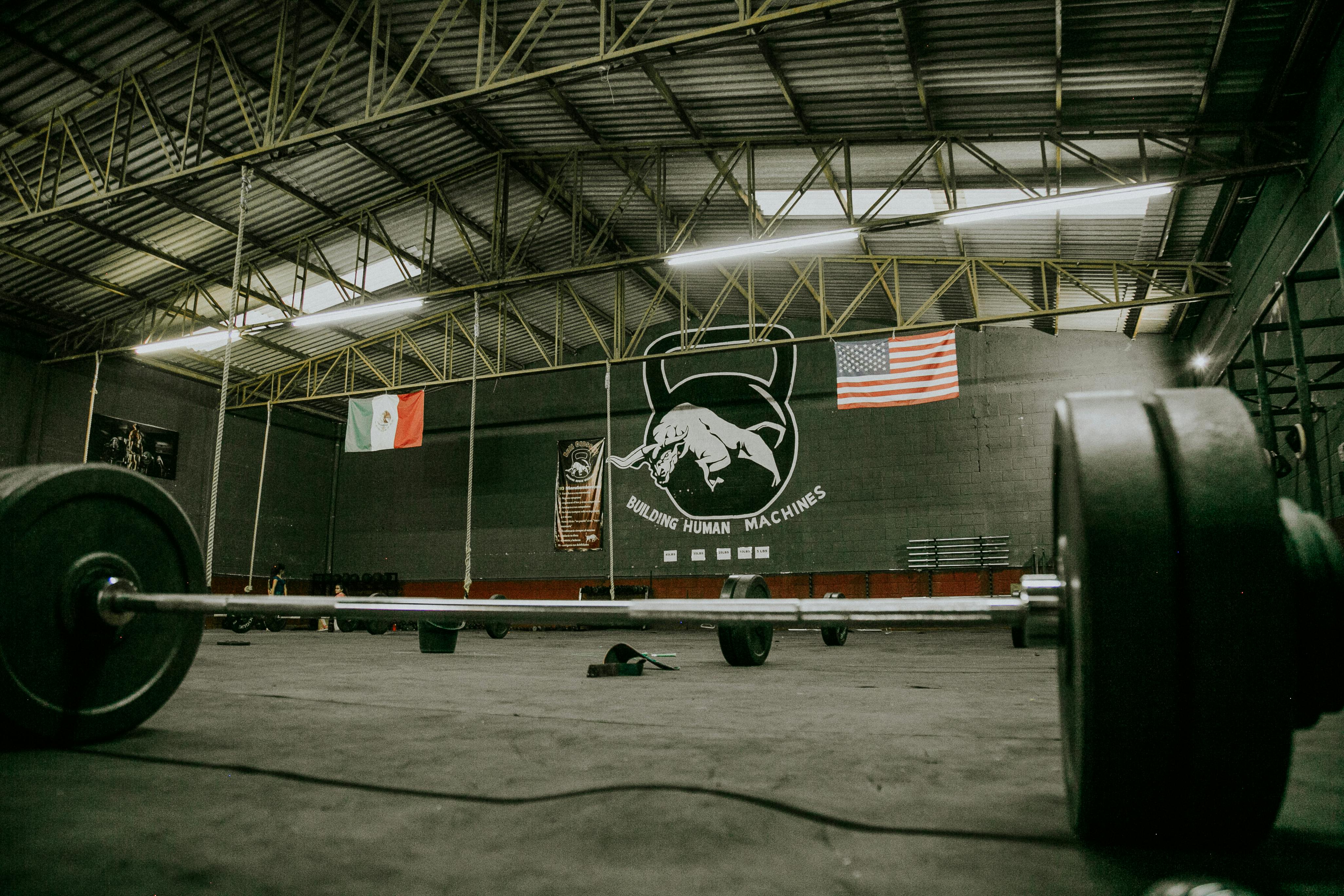Practical Ways to Achieve Muscle Growth in a Caloric Deficit for Maximum Results in 2025

Achieving muscle growth while in a caloric deficit can be a challenging yet rewarding endeavor. Many individuals aim to lose fat while maintaining or even increasing their muscle mass, a goal that requires careful planning in terms of nutrition and training. This guide will explore practical methods to promote muscle growth (Muskelaufbau) effectively without exceeding your caloric intake. We will discuss the importance of strength training (Krafttraining), dietary adjustments (Ernährung), and the right use of supplements (Supplements) to support your fitness journey. By setting clear fitness goals (Fitnessziel) and understanding the fundamental principles of muscle hypertrophy (Hypertrophie), you can successfully navigate your fitness journey in 2025.
The benefits of optimizing your fitness strategy while in a caloric deficit extend beyond just physical appearance. You will enhance your overall health, improve your body composition, and elevate your performance in various activities. This article will provide a roadmap covering diet, training regimes, and recovery strategies tailored for both beginners and experienced fitness enthusiasts. By the end of your read, you’ll have practical tips and insights to achieve muscle growth while managing a calorie deficit effectively.
Essential Training Strategies for Muscle Growth in a Caloric Deficit
Building muscle while in a caloric deficit hinges significantly on effective training methodologies. To maximize muscle mass and strength gains, it is crucial to implement a structured training plan. When your body is deprived of extra calories, the stimulus provided through proper training becomes even more vital.
Highlighting the Importance of Resistance Training
Resistance training (Widerstandstraining) is your best friend when aiming for muscle growth while dieting. Engaging in exercises that target various muscle groups allows for muscle retention and growth through continuous stress, encouraging physiological adaptations that facilitate hypertrophy. Focus on compound movements such as deadlifts, squats, and bench presses, which work multiple muscle groups simultaneously enhancing overall strength.
Incorporating High-Intensity Training Techniques
Incorporating high-intensity training (Hochintensitätstraining) techniques, such as supersets or drop sets, can stimulate muscle growth even when in a caloric deficit. These methods elevate metabolic stress and promote hormonal changes beneficial for muscle growth by engaging the muscle fibers more intensely during workouts. By strategically incorporating these techniques, your body will respond positively, supporting muscle mass development.
Emphasizing Training Frequency
Increasing the frequency of your workouts can also play a crucial role in muscle preservation. Instead of heavy lifts once or twice a week, aim for full-body workouts multiple times a week or split routines that allow targeting each muscle group more frequently. This helps your body tap into muscle repair mechanisms, which are essential for muscle growth during caloric deficits.
With a solid training strategy established, we will now shift our focus to the nutritional adjustments necessary for supporting muscle growth while in a caloric deficit.
Optimizing Nutrition for Muscle Growth in a Caloric Deficit
Nutrition is a cornerstone of any effective fat-loss or muscle-building strategy. Even when in a caloric deficit, the right nutritional strategy can promote muscle repair, hormonal balance, and energy levels necessary for training.
Calculating Your Protein Needs
Protein is essential when focusing on muscle growth, especially in a caloric deficit (Kaloriendefizit). Ensuring adequate protein intake helps repair and grow muscle tissue following training. It is generally recommended to consume approximately 1.6 to 2.2 grams of protein per kilogram of body weight per day. Sources such as lean meats, fish, dairy, and plant-based proteins should be prioritized to meet these needs.
Strategizing Macronutrient Ratios
While protein is vital, an understanding of macronutrient ratios (Makronährstoffe) is crucial. A balanced ratio that includes healthy fats and carbohydrates is necessary to provide energy and support metabolic functions. Although carbohydrate intake might need to be moderated when in a caloric deficit, it is essential to consume enough to fuel workouts effectively and aid recovery.
Meal Timing and Frequency
Meal timing can also impact muscle growth. Eating smaller, more frequent meals may aid in maintaining energy levels and optimizing nutrient absorption. Incorporate pre-and post-workout nutrition strategies to ensure your body has the necessary nutrients for performance and recovery. Consuming a protein-rich snack or shake shortly after workouts can significantly aid muscle repair and growth.
By implementing a structured training regimen and optimizing nutrition, you can set a strong foundation for muscle growth even while in a caloric deficit. Next, we will address the crucial role supplements play in this process.
Utilizing Supplements for Enhanced Muscle Growth
Supplements can provide valuable support for muscle growth when in a caloric deficit. While whole foods should always be the priority, certain supplements can complement your diet and training regimen effectively.
The Role of Protein Supplements
Supplements like protein powders (Eiweißshake) can help achieve daily protein intake goals, especially for individuals struggling to meet their needs through whole foods. Whey protein is a popular option due to its rapid absorption properties post-workout, while casein offers a slower release, making it suitable for nighttime recovery.
Considering Creatine as an Option
Creatine has been shown to enhance muscle growth, improve performance, and aid in recovery. It is beneficial even in a caloric deficit, as it can help maintain strength levels and promote increased training intensity through improved ATP production. Adding a creatine regimen to your supplementation plan can result in noticeable improvements in your muscle development.
100% Natural Supplements Options
Other natural supplements such as BCAAs (Branched-Chain Amino Acids) can support muscle recovery and prevent muscle breakdown during caloric restriction. They can be beneficial, especially during high-intensity training phases. However, it is essential to consult with a healthcare professional before beginning any supplementation regimen.
With training, nutrition, and supplementation discussed, the next area we’ll explore is the importance of recovery strategies in this holistic approach.
Fostering Recovery for Optimal Muscle Growth
Recovery is often overlooked in discussions about muscle growth, yet it plays a critical role in supporting hypertrophy, especially during caloric deficits. Understanding how to integrate effective recovery practices into your routine can markedly enhance your muscle-building results.
Implementing Active Recovery Techniques
Incorporating active recovery methods, such as light cardio and stretching, aids in soreness prevention and accelerates muscle repair processes. Engaging in these activities helps to promote circulation, delivering essential nutrients to damaged tissues more efficiently.
Prioritizing Sleep for Recovery
Ensuring adequate sleep is another fundamental aspect of recovery. The body typically repairs and builds muscle during deep sleep, making it essential for achieving your muscle growth goals. Aim for 7-9 hours of quality sleep each night. Establishing a consistent sleep schedule and practicing good sleep hygiene can greatly facilitate recovery.
Utilizing Proper Hydration Strategies
Staying hydrated is vital for muscle recovery and overall performance. Dehydration can impair strength and endurance levels, hindering your training effectiveness. Focus on drinking enough water throughout the day, and consider electrolyte-rich beverages post-workout to replenish lost nutrients.
With a comprehensive understanding of training, nutrition, supplementation, and recovery strategies, you are well-equipped to pursue your muscle growth goals even while in a caloric deficit. Next, we will respond to some of the most common questions surrounding this topic.
Frequently Asked Questions about Muscle Growth in a Caloric Deficit
Can I really build muscle while losing weight?
Yes, it is possible to build muscle while losing weight, although it requires careful adherence to training and nutritional strategies. Prioritizing protein intake and focusing on high-quality resistance training can promote muscle growth even in a caloric deficit.
What role do macronutrients play in muscle growth?
Macronutrients play a crucial role in supporting muscle growth and overall performance. Protein is vital for tissue repair and muscle synthesis, carbohydrates provide energy for workouts, and fats support metabolic functions and hormonal balance.
How important is recovery for muscle growth?
Recovery is essential for muscle growth as it allows for muscle repair and adaptation to training stimuli. Proper recovery practices, including sleep, hydration, and active recovery, enhance performance and promote enhanced results in strength and muscle mass.
Are supplements necessary for muscle growth?
While not strictly necessary, supplements can significantly support muscle growth efforts, especially when whole foods alone cannot meet dietary needs. Protein powders and creatine are particularly beneficial for many individuals in reaching their fitness goals.
What should I focus on if I’m a beginner in muscle building?
As a beginner, focus on mastering basic strength training techniques and establishing a balanced diet rich in protein. Gradually progress in intensity and complexity in your workouts while maintaining proper nutrition to support muscle growth effectively.

Conclusion
Achieving muscle growth in a caloric deficit is challenging but entirely possible with the right strategies in place. By implementing effective training, optimizing nutrition, considering beneficial supplements, and prioritizing recovery, you can navigate your fitness journey effectively. Staying committed to your fitness goals (Fitnessziel) and staying educated on best practices will allow you to achieve lasting results in muscle building and overall health. For further guidance, check out this insightful article on Nutrition for Athletes and explore Training Strategies for Muscle Gain.
